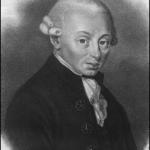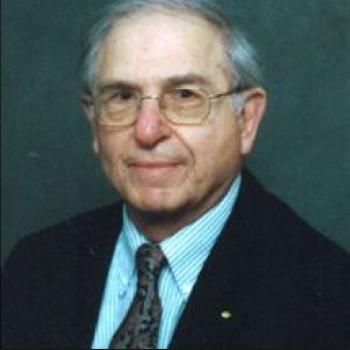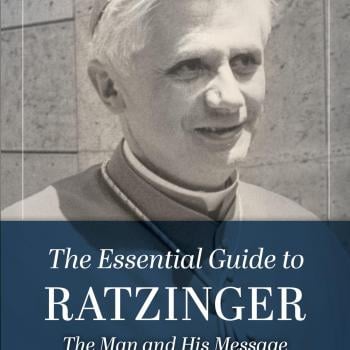What Really is Freedom?
Aristotle states – “Freedom is the ability to do what one ought. To act always as ones’ desires dictate is not freedom but slavery, and slavery to a hard master. Even an animal or a slave can live according to its desires.”
Author, Christian apologist, and Oxford-Cambridge professor C.S. Lewis dealt extensively with this philosophy and made it his own, working it out through exchanges and debates with his contemporaries and friends which comprised his literary enthusiast group, the Inklings.
His influence extended most notably to, fellow author and Oxford colleague and professor, J.R.R. Tolkien. This counter-cultural transcendent notion of true freedom, (the strength of character to choose rightly,) which, according to Lewis, is drawn from an awareness of, and adherence to the intrinsic and universal code of morality is manifested prominently in his writings, personal life, and politics.
True to his beliefs, Lewis’s integrates these fundamental concepts into his many varied works. He deems their universality to be essential, and urgently impresses this idea upon his readers. Ironically, his writings are often miscategorized as solely fantasy or children’s literature. While he was certainly in favor of using fantasy elements in his books, as his membership with the Inklings, (a primarily fantasy-driven discussion-group) makes clear, much of what he wrote tended to be more intellectual & scholarly. The Chronicles of Narnia, specifically The Lion, the Witch, and the Wardrobe are the best known exception to this general rule, but even this book has a more complex “sacramental” reality behind it and was written for wider audiences than just children. Its popularity alone proves this to be true.
His incorporation of Christian mysticism and symbolic elements and characters was meant not only to capture the audience’s attention, but rather to transport them to a greater contemplation of sublime realities, portraying the characters themselves as “texts to be read” (Muth). A great example of this is captured in the scene in which, Aslan who represents Christ, allows himself to be sacrificed on the stone table in order to redeem Edmund after he ate the Turkish delights that the White Witch offered him, – referencing Adam’s abuse of freedom in eating the fruit in the garden of Eden and subjecting himself to the law of sin and death. Lewis even went so far as to make explicit references to the “Lord Adam and Lady Eve” through the character of Aslan”(Williams).
Lewis, like many medievalists was keen on the idea that God created the perceptible world as a shadow or reflection of the imperceptible, as a means of revealing Himself to mankind in a way that he might perceive and understand Him without being overwhelmed by the reality and enormity of the truth (Muth). When man follows the moral code, or acts virtuously, and thereby remains in step with nature’s innate goodness he perceives objective reality as it truly is, rather than a distortion. Virtuous behavior is an exercise of this “freedom faculty” and puts man in touch with his Maker.
Freedom From or Freedom For?
When C.S. Lewis addresses freedom, he has great appeal to universal audiences because he both challenges and offers a vision of hope. The general concept of freedom, especially to Americans, is an integral one. It shapes the path that society takes and determines the means as well as the end that is chosen. It is a foundational principle, that if distorted or abused, could lead the country toward destruction, but if understood properly, it is the means by which its greatest hopes, dreams and aspirations are answered.
Contrary to what the root of the word suggests, freedom is not necessarily free. America was built by sacrifice and responsibility and is blessed to have a constitution that has as one of its prominent tenets a provision that accords freedom (or Liberty) as a right. This is not the case with all countries. For example, the residents of Cuba are not free to express certain beliefs about their government, or to travel abroad. And in some Middle Eastern countries, women are not allowed to be outside of the home without the accompaniment of a man, whether it be a husband or a brother.
In many cultures, freedom is often seen in relation “from” something else. A few examples might be freedom from chains or freedom from systematic oppression. What’s a bit less mainstream is the concept of freedom “to” or freedom “for”; Freedom for change or growth, freedom to pursue excellence, freedom to fulfill the right desires, freedom to give and receive love – arguably the highest good in our world, according to many, including Lewis, who also believed that those wedded to a certain image of themselves by pride had an excruciating difficulty of attaining to(Williams).
He was also of the mind that true freedom was bestowed by grace and couldn’t be acquired solely through human effort and self-mastery, due to the perversions of love and desire common to man, – though he firmly insisted that the beginning of freedom was built upon a full assent and attempt to adhere to God’s moral law (Gruenler). Popular mischaracterizations seem to have diluted the true meaning of this subject.
People often forget or simply haven’t learned that freedom can be forfeited through abuse or neglect. The misplacement of freedom that is so prevalent to the fallen side of our human condition is the definition of license, freedom’s counterfeit. Lewis would transmit these themes far and wide. In doing so he gained much attention and notoriety from both within the UK and abroad.
Where True Happiness is Found
Lewis, although a very eligible bachelor for most of his life, assumed that he would never marry, but in his late 50s he met and married Joy Davidman, one of his ardent fans who had traveled from America to meet him. A prodigy of sorts in her own right, she had broken the scale on her IQ test as a child, earned her master’s degree in English literature from Columbia University at 20 years old, and was by then in her 40’s (Dorsett). Lewis’s new partner was also keen on this sense of universal morality and is quoted saying about society –
“Can we reasonably expect happiness from an insatiable appetite which, no matter how it stuffs its belly, is still psychologically like Oliver Twist in the poorhouse, holding up an empty bowl and begging, “I want some more”? Isn’t it possible that our dream of the good society contained, from the beginning, a hidden violation of the Tenth Commandment “Thou shalt not covet thy neighbor’s goods”?”
It could also be added that this sort of mentality has crippled the West and done irreparable damage in the form of enslavement to its passions and lack of concern for neighbors who are not so well off. Blaise Pascal, another author and Christian apologist, but from the 16th century, explains Joy’s insight with his pre-dated quote stating: “it is not good to be too free, it is not good to have everything one wants.”(Pascal) Pascal is here only affirming what Christ Himself said in the Gospel when he stated:
“The reason my Father loves me is that I lay down my life–only to take it up again. No one takes it from me, but I lay it down of my own accord. I have authority to lay it down and authority to take it up again. This command I received from my Father.” (John- 10:18)
In other words, rather than assenting to every desire, Jesus shows that freedom is also exercised when limitations are freely accepted and in so doing, the freedom is paradoxically maintained. Another facet of this idea which Lewis strongly professed was that inspiring the conversion of a neighbor was the highest charity and the greatest good one could do for the freedom of the individual and society alike. He wished to ensure that his neighbor could find this freedom for virtue and meaning in his own life.
It could be argued that this was his primary focus in writing to the extent that he did. His example of broadcasting the talks during World War II that made up Mere Christianity shows this. He ultimately based this freedom in his own faith and proved that religious belief enabled the most all-encompassing version of freedom.
Mere Christianity is also one of Lewis’s greatest successes, selling over 3.5 million copies, further affirming this supposition. Joy, Lewis’ wife, is remembered saying about her husband “I suppose it’s unfair, tricks of argument that leave wounds, but with this sort of thing that Lewis does, what I feel is a craftsman’s joy at the sight of a superior performance” (Huie). Other examples of this freedom as an aspect of conversion or as a result of Lewis’ apologetics include the well-known scene in the Great Divorce where the ghost is challenged to let the angel kill the lizard on his shoulder which represents his accumulated vices before he can enter the kingdom of Heaven.
An Unlikely Protagonist
In the Silver Chair likewise, Puddleglum, in a surprising twist of character development, exercises his freedom to choose what kind of life he wants to live, despite the witch’s mind tricks leaving Puddleglum and companions into believing that Narnia is not real. In a brilliant monologue, Puddleglum famously states:
“Suppose we have only dreamed, or made up, all those things–trees and grass and sun and moon and stars and Aslan himself. Suppose we have. Then all I can say is that, in that case, the made-up things seem a good deal more important than the real ones. Suppose this black pit of a kingdom of yours is the only world. Well, it strikes me as a pretty poor one. And that’s a funny thing, when you come to think of it. We’re just babies making up a game, if you’re right. But four babies playing a game can make a play-world which licks your real world hollow. That’s why I’m going to stand by the play-world. I’m on Aslan’s side even if there isn’t any Aslan to lead it. I’m going to live as like a Narnian as I can even if there isn’t any Narnia. So, thanking you kindly for our supper, if these two gentlemen and the young lady are ready, we’re leaving your court at once and setting out in the dark to spend our lives looking for Overland” (p. 432).
He clearly stands by his convictions and understands that even if they are wrong, at least he is living out his freedom in the highest order of values that he knows.
Persuasion, not Coercion
Interestingly enough, and probably one of the main reasons for his immense success, Lewis was very careful not to force his views on others, but rather his work was always that of careful, thoughtful, and friendly suggestion. He was strongly against any sort of imposition and in fact, is recorded having said
“Of all tyrannies, a tyranny sincerely exercised for the good of its victim may be the most oppressive. It would be better to live under robber barons than under omnipotent moral busybodies. The robber baron’s cruelty may sometimes sleep, his cupidity may at some point be satiated; but those who torment us for our own good will torment us without end for they do so with the approval of their own conscience” (Huie).
Certainly this approach can extend to other areas and in fact, it may not have ever been geared towards speaking to his views on evangelization or general promulgation of the faith, but regardless, it fits and is a principle that he never compromised. This statement also coincidentally sums up a good deal of his political values and views on the role of the state. Lewis found the idea of theocracy ridiculous and heavy-handed, so there again, this disdain for moral busybodies, and favor for preparing individuals for the virtuous exercise of freedom is evident. He also insisted on a limited government, which allowed the greatest freedoms for individuals.
Lewis believed that Christianity was too often thrown into politics where it did not belong. His views on religion’s distinction from government can be summed up in his own words “Aim at heaven and you will get earth ‘thrown in,’ aim at earth and you will get neither.” (Wehner) Phillip Yancey a well-known scholar of Lewis, is recorded as stating: “C.S. Lewis observed that almost all crimes of Christian history have come about when religion is confused with politics. Politics…allures us to trade away grace for power, a temptation the church has often been unable to resist.”
Lewis’s Legacy
Lewis and Davidman had a happy-yet-short marriage of 4 years before Joy died of a recurrence of cancer. Lewis was left in a state of shock and sorrow. He wrote, under the pseudo-name N.W. Clerk, his memoirs in A Grief Observed about his marriage, Joy’s death, and the agony that followed. Lewis struggled profoundly during this period with reconciling the suffering he felt at his loss and his faith in God. But with time and through writing down what was essentially a stream of consciousness, he eventually found peace. His honesty and transparency, really makes this book enormously insightful as to what Lewis had to go through, – his prose being even more impeccable in this instance than in most cases (Boothe).
Lewis was ironically only a convert to the Christian faith himself, after being an enthusiastic atheist for the early portion of his life due to the loss in his early childhood. His reluctance to remodel his beliefs was arguably the most prominent aspect of his conversion, save for the grace by which he claimed to have been rescued from the clutches of the world and death. He fought long and hard to avoid conversion if at all possible (Schwartz). He rationalized, minimized and battled with the full extent of his intellect and will, until gradually he determined it was futile and was quoted saying “I gave in and admitted that God was God”(Huie).
Lewis’s name is often lumped together with many other literary masters such as his contemporaries Virginia Woolf and James Joyce (Watson). In a way though, this serves to obscure his message, – a message of the acceptance of love, responsibility and universal morality which is glaringly needing to be recognized and maintained, especially when society seems to have lost its sense of direction and morality seems to have all but disappeared from the public sphere.
Lewis’s message is an offer and a challenge for society to accept the implications of a common moral imperative and to work diligently toward the betterment of the common-good without so much focus on self.
Lewis’s political savvy, though not explicit, was often subtly inferred and wisely scattered throughout his manuscripts along with his Christian philosophy of the world. He was not fond of the idea of being seen as a political pundit or figure. Interestingly, he was called upon soon after Winston Churchill became prime minister of England to receive the honorary privilege of being designated as the “Commander of the British Empire” (Scheiderer). He respectfully declined the offer.
This despite the fact that Lewis’s main concern and view was with that of the polis, the Aristotelian view which combined many diverse but overlapping spheres of social and political thoughts on topics ranging from families and education, to business and government. It was a comprehensive worldview which only the most educated scholars possessed. Lewis’s view combined ideas from Rousseau, to Marx, to Locke, to the Ancient Greeks.
It was this trait especially that made him look attractive and useful to the political elites of his time. Fortunately, Lewis had the insight to avoid this arena professionally at any cost. Had he not, his literature may never have translated through time, reaching the enormous audiences that they have. Although his political views were never a main focus, his ways of thinking, along with his discreet contributions, made a major impact on the political landscape of his time. His eclectic outlook has certainly changed the face of what is considered classic.
While Lewis was certainly a prominent figure in England during his lifetime, he most likely would never have imagined the worldwide impact he would make after his death, when most of his works were discovered. Critics and fans alike, are in awe after reading one of his classics. The notion that death is inescapable does not hold true for authors like Lewis, whose teachings on ever-important topics such as freedom, truth, and morality will constantly be referenced. His life and works will remain an integral part of the curriculum for generations to come, and similar to the Greeks’, will be passed down eternally.
Works Cited:
Dorsett, Lyle W. “Helen Joy Davidman (Mrs. C.S. Lewis) 1915-1960: A Portrait” C.S. Lewis
Institute,
http://www.cslewisinstitute.org/node/31, Accessed 16 May 2019
Gruenler, Curtis. “C. S. Lewis and René Girard on Desire, Conversion, and Myth: The Case of
‘Till We Have Faces.’” Christianity & Literature, vol. 60, no. 2, Winter 2011, pp. 247–265. EBSCOhost, doi:10.1177/014833311106000203.
http://ccbcmd.idm.oclc.org/login?url=http://search.ebscohost.com/login.aspx?direct=true&db=aph&AN=59335885&site=eds-live&scope=site, Accessed 16 May 2019
Huie, Jonathan L. “I Gave up and admitted that God was God” Quotes,
http://www.quotes-inspirational.com/quote/gave-admitted-god-55/, Accessed on 16 May 2019
Muth, Michael “Beastly Metaphysics: The Beasts of Narnia and Lewis’ Reclamation of
Medieval Sacramental Metaphysics” in Pursuit of Truth: A Journal of Christian Scholarship, C.S. Lewis Foundation, 13 Jan. 2019
http://www.cslewis.org/journal/beastly-metaphysics-the-beasts-of-narnia-and-lewis%E2%80%99-reclamation-of-medieval-sacramental-metaphysics/, Accessed 16 May. 2019
Pascal, Blaise “Blaise Pascal Quotes” All Great Quotes
https://www.allgreatquotes.com/quote-44048/, Accessed on 16 May 2019
Scheiderer, Tim “Lewis and Politics” C.S. Lewis, 23 Aug. 2018
http://www.cslewis.com/lewis-and-politics/, Accessed 16 May, 2019
Schwartz, Adam “The Most Reluctant Convert: C. S. Lewis’s Journey to Faith.” Christianity &
Literature. Autumn2002, Vol. 52 Issue 1, p107-110. 4p.
http://ccbcmd.idm.oclc.org/login?url=http://search.ebscohost.com/login.aspx?direct=true&db=hlh&AN=17552897&site=eds-live&scope=site, Accessed 16 May 2019
Tennyson, Boothe “C.S. Lewis Grief Observed Summary and Review” BibleBoothe, 28 Mar.
2016
https://bibleboothe.com/c-s-lewis-grief-observed-summary-and-review, Accessed 16 May 2019
Watson, George “The High Road to Narnia: C. S. Lewis and his friend J. R. R. Tolkien believed
that truths are universal and that stories reveal them” American Scholar, vol. 78, no. 1, Winter 2009, p. 89. EBSCOhost,
http://ccbcmd.idm.oclc.org/login?url=http://search.ebscohost.com/login.aspx?direct=true&db=f5h&AN=35717562&site=eds-live&scope=site, Accessed 16 May 2019
Wehner, Peter “The Political Magic of C.S. Lewis” New York Times, 24 Sep. 2016
https://www.nytimes.com/2016/09/25/opinion/sunday/the-political-magic-of-cs-lewis.html, Accessed 16 May 2016
Williams, Rowan “Why Narnia”, The Chronicle of Higher Education,15 Feb 2013, Vol. 59
Issue 23, http://ccbcmd.idm.oclc.org/login?url=http://search.ebscohost.com/login.aspx?direct=true&db=edsggo&AN=edsgcl.319373769&site=eds-live&scope=site, Accessed 16 May 2019
This article I wrote was originally published in Fellowship and Fairydust Magazine, in the Spring 2022 issue, Saints and Sages, Issue 1, Volume 17.














